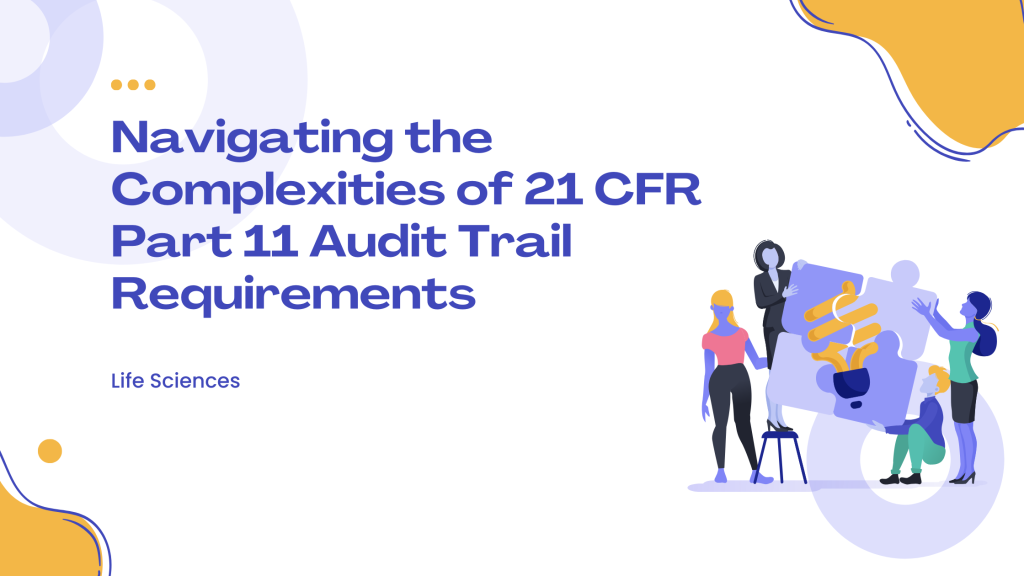In the life sciences industry, compliance with regulatory standards is paramount. One such critical regulation is the 21 CFR Part 11, issued by the U.S. Food and Drug Administration (FDA), which deals with electronic records and electronic signatures. A key aspect of this regulation is the management of audit trails, which are essential for ensuring data integrity, reliability, and compliance. This article delves into the major audit trail requirements of 21 CFR Part 11, highlighting their implications and importance in the life sciences sector.
1. Ensuring Audit Trail Security
Audit trail security is the cornerstone of 21 CFR Part 11 compliance. The regulation mandates that access to systems that manage electronic records be restricted to authorized individuals. This control is crucial to prevent unauthorized alterations and ensure the audit trail remains a trustworthy record of actions. According to 21 CFR 11.10(e), the audit trails must be secure and only accessible to authorized personnel, thereby maintaining the integrity of the records.
2. Computer-generated, Time-Stamped Audit Trails
The regulation stipulates that audit trails must be automatically generated by the system, negating the possibility of manual errors. Additionally, it is required that each entry in the audit trail be time-stamped, documenting the exact moment of the action, such as the creation, modification, or approval of records.
3. User Identity Verification and Action Tracking
Verifying the identity of the individual performing actions within the system is another critical requirement. The audit trail must accurately capture who performed each action, bringing accountability and traceability to the system operations. 21 CFR 11.10(g) underscores the need for authority checks to ensure that only authorized users can access the system.
4. Non-obfuscation of Previously Recorded Information
A vital aspect of audit trails under 21 CFR Part 11 is the preservation of previously recorded information. The regulation mandates that any record changes should not obscure earlier entries, thus maintaining a clear and complete history of all actions performed on the electronic records.
5. Retention and Accessibility of Audit Trail Documentation
The audit trail must be retained for a period of at least as long as required for the related electronic records and be readily available for agency review and copying. This requirement ensures that the audit trail can be scrutinized during FDA inspections or audits, maintaining regulatory compliance. Make sure your 21 CFR Part 11 validated LMS provides robust audit trail documentation.
Conclusion: The Importance of Compliance and the Benefits
Complying with the audit trail requirements of 21 CFR Part 11 is not just a regulatory necessity but also a strategic business decision. A well-managed audit trail system enhances data integrity, facilitates traceability and accountability, and prepares companies for regulatory inspections. Moreover, it plays a pivotal role in detecting and preventing data tampering, fraud, and unauthorized access, thereby safeguarding the interests of both the company and the end-users of their products. See how eLeaP provides this to our life sciences clients.
In summary, the audit trail requirements of 21 CFR Part 11 are integral to the life sciences industry’s commitment to maintaining high standards of data integrity and regulatory compliance. As technology continues to evolve and become further embedded in the life sciences sector, adhering to these requirements becomes increasingly critical for companies looking to sustain and grow their market presence.
